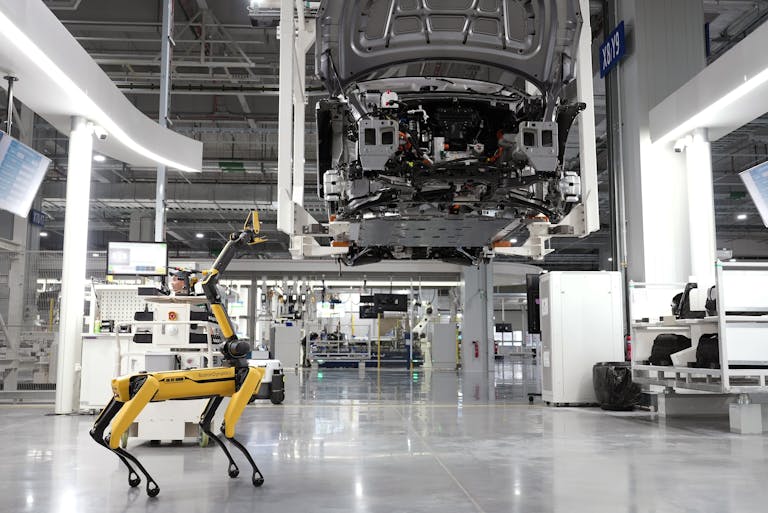How AI is Revolutionizing Manufacturing: Key Benefits and Use Cases
The manufacturing industry is undergoing a seismic shift, driven by the integration of Artificial Intelligence (AI). From optimizing production lines to enabling predictive maintenance, AI is transforming the way factories operate, making them smarter, more efficient, and future-ready.
Why AI Matters in Manufacturing
Manufacturing involves complex processes that require precision, efficiency, and adaptability. Traditional methods often fall short when faced with modern challenges such as fluctuating demand, supply chain disruptions, and the need for sustainability. AI addresses these challenges by enabling data-driven decision-making, automation, and real-time monitoring.
Key Benefits of AI in Manufacturing
- Increased Efficiency: AI algorithms analyze production processes to identify bottlenecks, reduce waste, and optimize resource utilization. This leads to higher productivity and cost savings.
- Predictive Maintenance: With AI-powered sensors and analytics, manufacturers can predict equipment failures before they occur, minimizing downtime and maintenance costs.
- Quality Control: AI systems can detect defects in products with unparalleled accuracy, ensuring consistent quality and reducing rework or scrap.
- Supply Chain Optimization: AI enables real-time tracking and forecasting, helping manufacturers adapt to changes in demand and manage inventory effectively.
- Enhanced Worker Safety: AI-driven robots and monitoring systems improve workplace safety by automating hazardous tasks and detecting potential risks.
Real-World Use Cases of AI in Manufacturing
1. Predictive Maintenance at General Electric (GE)
GE uses AI-powered analytics to monitor the health of their industrial equipment. By predicting potential failures, they have reduced downtime and saved millions in maintenance costs.
2. Quality Control in Automotive Manufacturing
Car manufacturers like BMW leverage AI for visual inspections on production lines. AI systems identify imperfections in car parts that are invisible to the human eye, ensuring top-notch quality.
3. Smart Factories with Industry 4.0
Siemens has integrated AI into their smart factories, enabling real-time decision-making and automation. This has resulted in faster production cycles and improved customization capabilities.
4. Energy Efficiency in Electronics Manufacturing
AI-driven energy management systems help electronics manufacturers optimize energy consumption, reducing costs and environmental impact.
Overcoming Challenges in AI Adoption
While the benefits of AI are immense, adopting it comes with challenges such as high initial costs, data security concerns, and the need for upskilling the workforce. However, these challenges can be addressed through strategic planning, partnerships with AI experts, and continuous investment in employee training.
The Future of AI in Manufacturing
The role of AI in manufacturing is expected to grow exponentially. With advancements in machine learning, robotics, and IoT, manufacturers will see even greater efficiencies and innovations. From fully autonomous production lines to personalized manufacturing, the possibilities are endless.
Final Thoughts
Artificial Intelligence is not just a tool; it is a transformative force driving the future of manufacturing. By embracing AI, manufacturers can overcome traditional limitations, stay competitive, and achieve sustainable growth. Now is the time to invest in AI and unlock its full potential.
Ready to transform your manufacturing processes with AI? Contact Factory Neural today to learn how we can help your business thrive.


